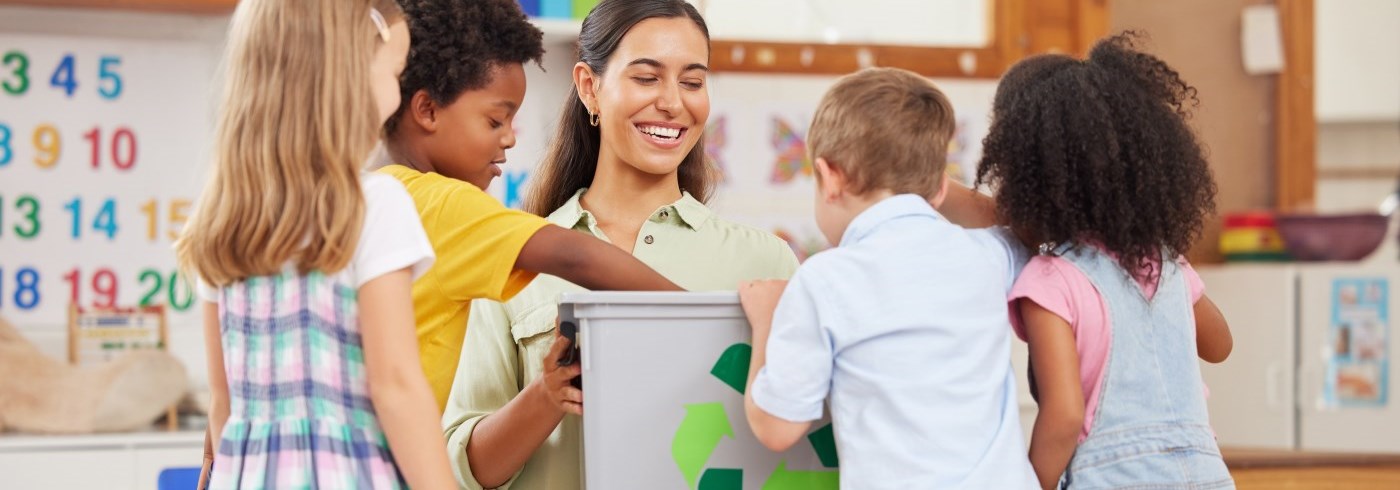
School Programs - Grade K to 8
The Region's waste education program has transitioned from in-school initiatives to interactive virtual presentations and online resources, enhancing our outreach in schools throughout Durham Region.
Request a Waste Management Presentation
We would love to book a presentation for your classroom! Our grade-specific presentations are interactive, can be scaled for multiple classes or grades with common links and they are completely free of charge.
| Grade K to 8 Virtual Presentations | ||||||||||||||||
|
||||||||||||||||
| In-person Kindergarten Education Sessions | ||||||||||||||||
|
In-person presentation for kindergarten-aged students will be considered if multiple kindergarten classes will be attending, and the presentation can be located within a quiet central spot (preferably a space like the school library or classroom) with a few tables available and a larger space for students to sit. Each class will rotate through the presentation for a pre-scheduled 30-minute timeslot. Schools can request one-day of in-person kindergarten presentations per school year. Staff will accommodate up to one in-person kindergarten presentation per week across all school boards when possible. Students will learn about the importance of responsible waste management through a variety of activities including a topic-specific story, hands on activities including waste sorting, and identifying ways that they can participate in responsible waste management to help keep our community a safe, healthy, and clean place to live. Summary of Education Session Students will sit together in a common area. The presenter will introduce themselves and the topic of the presentation. As a group, the presenter will read Michael Recycle (written by Ellie Bethel, illustrated by Alexandra Colombo) to provide a basic overview of the themes that will be explored throughout the presentation. Activity 1: There’s a mess in our town! (Waste sorting activity) Students will be introduced to each of the waste bins (reuse bin, blue boxes, green bin, and garbage bin) and explore what belongs in each waste bin. Students will then work together to sort a variety of waste materials into the correct bin using the tips and tricks provided by the presenter. Activity 2: Water pollution observation. Students will be encouraged to identify common litter items that the presenter has collected, placed in sealed jar of clean tap water, and left for a prolonged period. The class will work together to make observations about the quality of the water, such as changes in the colour, clarity, or state of the water and the litter items, and make connections to the potential impacts of pollution on the environment. Activity 3: Creative thought, what could I be next? Students will be encouraged to think of creative ways to reuse several clean waste materials and to share their ideas with the class. The presenter will share some examples using prepared photographs of fun craft projects that have been completed using materials from the blue box. Activity 4: Using our senses to explore finished compost. Students will explore what happens to the materials we place in the green bin once it leaves our homes. Using their senses (touch, sight, and smell), students will share their observations with the group and learn how we can use this material to grow new plants and new food. Wrap up: After a quick tidy-up, students will come back to the common area to wrap up, including an opportunity to ask any additional questions. Teachers will receive some additional information and promotional items to share with the class. Time expectation: Each class will be scheduled for a 30 to 45-minute timeslot during the day. |
Course Modules, Lesson Plans and Resources
Discover the five ‘R’s: Rethink, Reduce, Reuse, Recycle, and Recover, proper sorting, and other waste management topics, tailored to the Ontario Elementary School Curriculum.
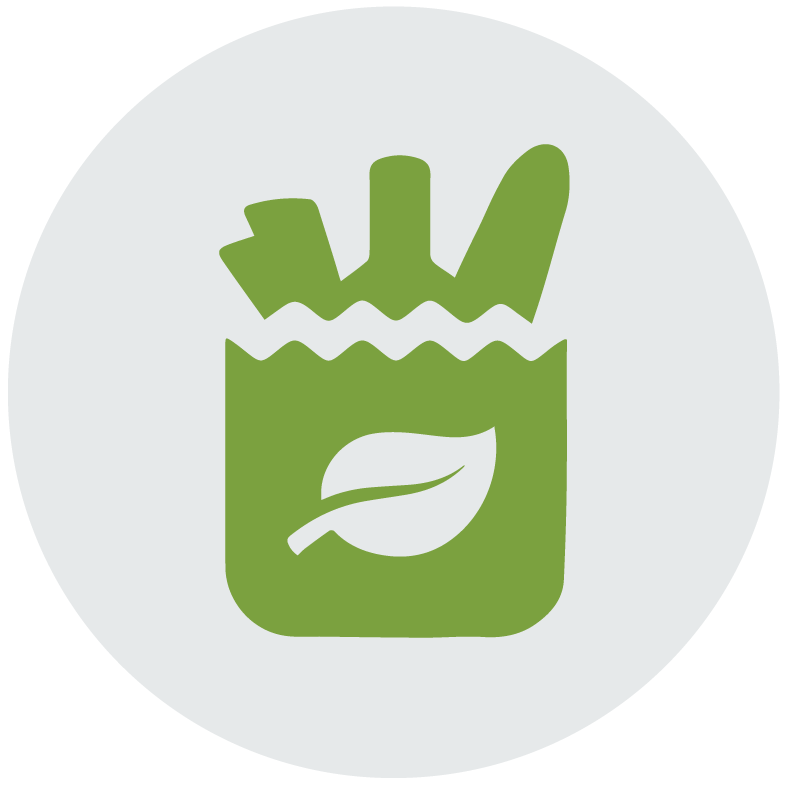 Rethink
Rethink
Students will learn about the first “R” in the Region’s Waste Management Hierarchy – Rethink. Rethink requires us to consider the products we bring home including how products were produced, where the materials came from, and if they are sustainable.
| Course Module | ||||
| Lesson Plans | ||||
|
Kindergarten Grade 2 Grade 5 Grade 7 |
||||
| Resources | ||||
|
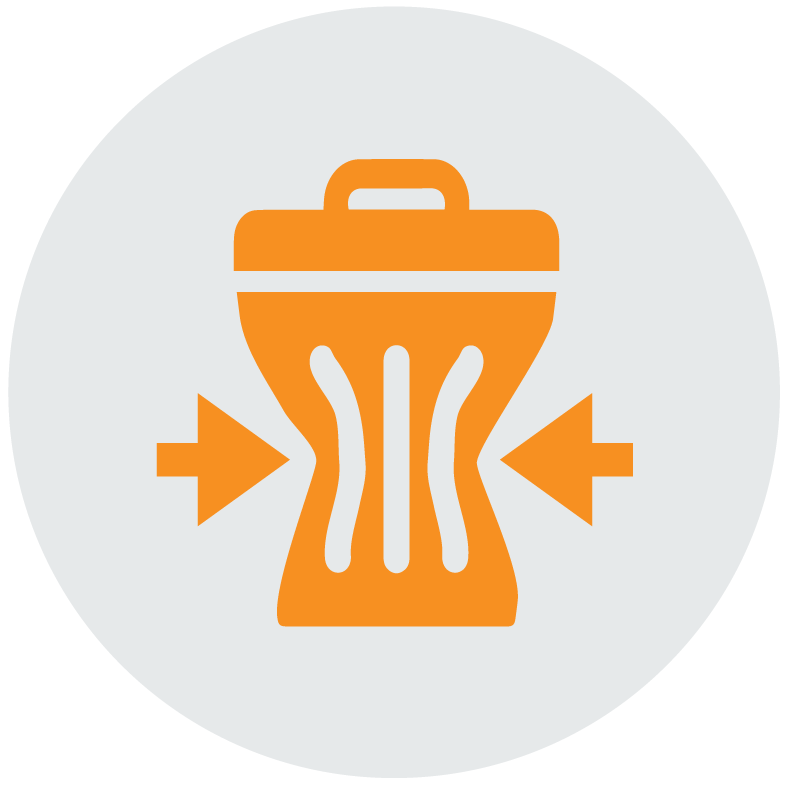 Reduce
Reduce
Students will learn about Reduce, the second “R” in the Region’s Waste Management Hierarchy. Reducing the amount of waste that we create decreases the amount of waste that needs to be managed and/or requires disposal – protecting the environment and our community.
| Course Module | ||||
| Lesson Plans | ||||
|
Kindergarten Grade 1 Grade 2 Grade 5 Grade 7 |
||||
| Resources | ||||
|
 Reuse
Reuse
Students will learn about Reuse, the third “R” in the Region’s Waste Management Hierarchy. Reuse is a great way to divert materials away from the waste stream, decreasing the amount of waste that needs to be managed or disposed of as garbage.
| Course Module | ||||
| Lesson Plans | ||||
|
Kindergarten Grade 1 Grade 4 Grade 5 Grade 8 |
||||
| Resources | ||||
|
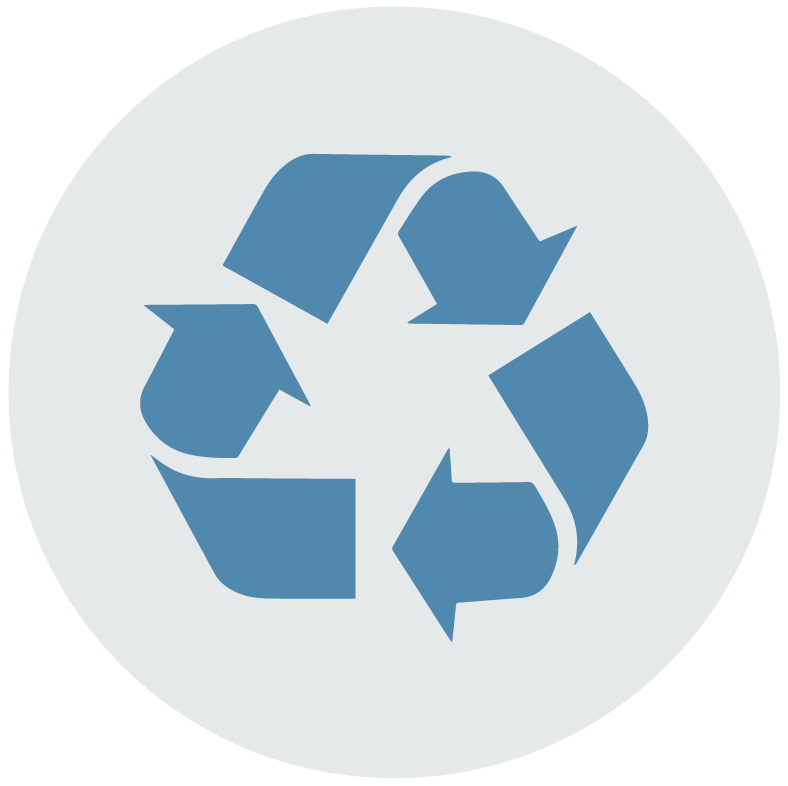 Recycle
Recycle
Recycle is the fourth “R” in the Region’s Waste Management Hierarchy, after Rethink, Reduce and Reuse. Recycle is an important step in the waste hierarchy but should be considered only after applying other alternatives. It is the last attempt to keep items out of the garbage bag and should be done after the other "R's" have been used. Students will learn about the Blue Box recycling program and how they can participate for a cleaner, greener future.
| Course Module |
| Lesson Plans |
|
Kindergarten Grade 1 Grade 3 Grade 4 Grade 5 Grade 7 |
| Resources |
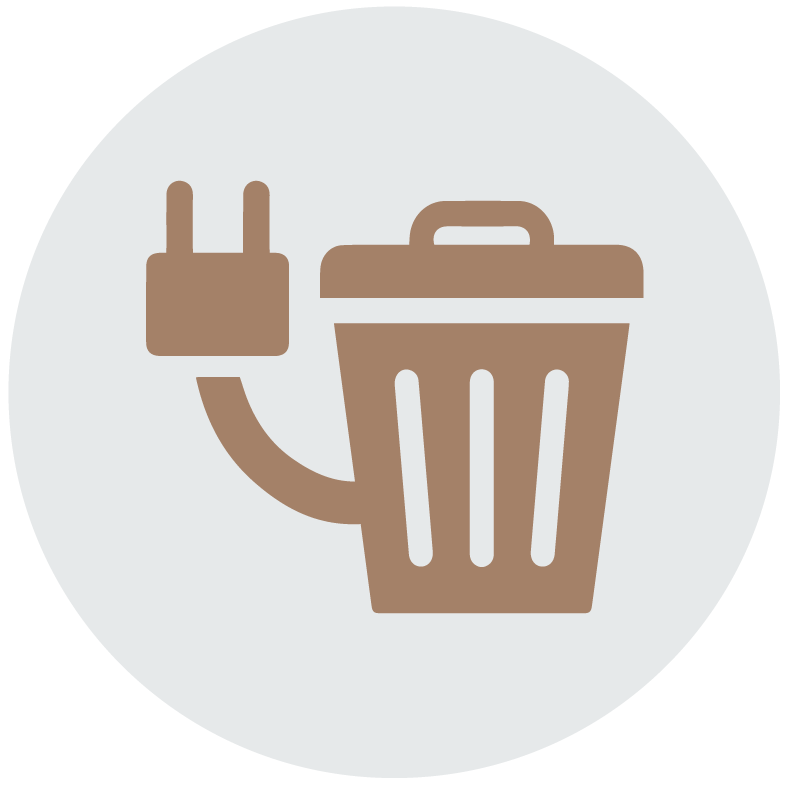 Recover
Recover
Even after applying the first four “R's”, Rethink, Reduce, Reuse, and Recycle, we still end up producing garbage. In the past, this garbage went to landfill. Today, Durham Region no longer relies on landfills as our primary way to dispose of garbage. That’s where the fifth “R” comes in, Recover. Students will learn how the Region is recovering valuable resources that remain in our garbage and how recovery benefits the environment and our community.
| Course Module | ||||
| Lesson Plans | ||||
|
Grade 1 Grade 4 Grade 5 and 6 |
||||
| Resources | ||||
|
 Compost
Compost
Composting is the process of turning organic material into a nutrient rich, soil-like material. Students will learn about what materials are compostable, how the material is processed, and explore how compost can reduce waste for disposal while creating a valuable material that can be used on lawns and in gardens.
| Course Module | ||||
| Lesson Plans | ||||
|
Kindergarten Grade 1 and 3 Grade 2 Grade 4 Grade 6 Grade 7 |
||||
| Resources | ||||
|
Contact Us




